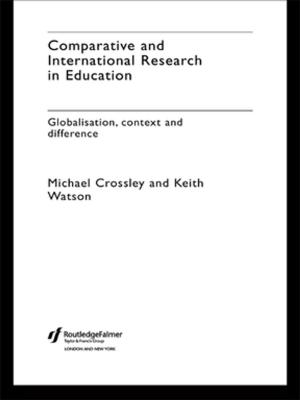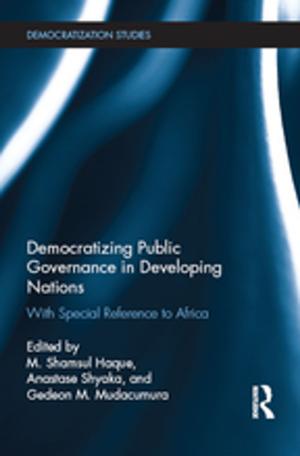Is the Environment a Luxury?
An Inquiry into the relationship between environment and income
Business & Finance, Economics, Sustainable Development| Author: | ISBN: | 9781317820338 | |
| Publisher: | Taylor and Francis | Publication: | July 11, 2014 |
| Imprint: | Routledge | Language: | English |
| Author: | |
| ISBN: | 9781317820338 |
| Publisher: | Taylor and Francis |
| Publication: | July 11, 2014 |
| Imprint: | Routledge |
| Language: | English |
The purpose of this collection of essays is to shed some light on the complex relationship between environmental quality and the distribution of income. Are the preferences of the poor towards a cleaner environment really different from those of the rich?
Environmental economists have traditionally focused on efficiency issues. In their analyses the quality of the environment is usually related to aggregate or average variables, like per capita income; policy recommendations are usually formulated considering efficiency with no regard for equity and also the predicted effects of policies are evaluated in aggregate terms.
The essays collected in this volume go into the problem of the relationship between environmental quality and income distribution. The book’s opening essay shows how different theories of economic growth and environmental quality seem to suggest that the higher the level of income the higher is the value of environmental protection. The essays that follow, a mix of already published papers and of papers solicited for this book, analyse the relationship between environmental quality and income distribution from different perspectives (both micro and macro) and on the basis of more than one methodology.
This book highlights that the preferences of the poor towards a cleaner environment may differ from those of the rich, but income is also very likely to represent only one factor affecting them. The essays consider other relevant factors affecting preferences for environmental quality. What clearly emerges is that the distribution of costs and benefits of environmental policies is the key for their successful implementation, and that further research is needed to both address the distributional effects themselves and the strategies to mitigate them.
The purpose of this collection of essays is to shed some light on the complex relationship between environmental quality and the distribution of income. Are the preferences of the poor towards a cleaner environment really different from those of the rich?
Environmental economists have traditionally focused on efficiency issues. In their analyses the quality of the environment is usually related to aggregate or average variables, like per capita income; policy recommendations are usually formulated considering efficiency with no regard for equity and also the predicted effects of policies are evaluated in aggregate terms.
The essays collected in this volume go into the problem of the relationship between environmental quality and income distribution. The book’s opening essay shows how different theories of economic growth and environmental quality seem to suggest that the higher the level of income the higher is the value of environmental protection. The essays that follow, a mix of already published papers and of papers solicited for this book, analyse the relationship between environmental quality and income distribution from different perspectives (both micro and macro) and on the basis of more than one methodology.
This book highlights that the preferences of the poor towards a cleaner environment may differ from those of the rich, but income is also very likely to represent only one factor affecting them. The essays consider other relevant factors affecting preferences for environmental quality. What clearly emerges is that the distribution of costs and benefits of environmental policies is the key for their successful implementation, and that further research is needed to both address the distributional effects themselves and the strategies to mitigate them.















